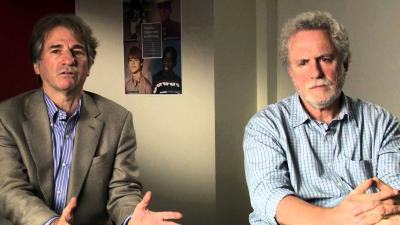Not Guilty, and Released Thanks to Them

The artist Taryn Simon’s “The Innocents” opened at Guild Hall in East Hampton on Saturday. While the project dates from 2002, its subject is timeless: wrongful conviction for violent crimes and the subsequent reversal of those convictions because of DNA evidence. Ms. Simon photographed a number of those exonerated in locations that were significant to the case, such as the scene of the crime, the scene of the alibi, or the scene of misidentification.
Ms. Simon embarked on the undertaking by contacting the Innocence Project, a nonprofit organization dedicated to exonerating wrongly convicted people through the use of DNA testing, and to reforming the criminal justice system. On Sunday afternoon at 3, Guild Hall will host a panel discussion featuring Peter Neufeld and Barry Scheck, the founders of the Innocence Project, and several of the people who have been found not guilty and freed. Ms. Simon will introduce the program.
Mr. Neufeld said during a telephone conversation that in the mid-1980s, he and Mr. Scheck tried to use DNA evidence to re-open an old conviction. Their request was denied. Soon thereafter, they were able to use it successfully, resulting in the overturning of a conviction.
“We said, wow! This has extraordinary potential, and we should do it,” said Mr. Neufeld. When they first set up the Innocence Project, they were on their own. They used the clinic at the Cardozo School of Law, which became their own freestanding clinic there. Eventually, they separated from the law school and set up as an independent nonprofit, yet remain affiliated with the law school.
“When we started, there was tremendous resistance, particularly on the part of prosecutors, who most of the time would not agree to post-conviction DNA testing. At that time there were no statutes on the books authorizing it, and judges were reluctant to do anything that wasn’t based on a statute.”
Judges eventually began to write decisions authorizing post-conviction DNA testing, after which Mr. Neufeld and Mr. Scheck were determined to get statutes passed by every state and by the federal government that would allow post-conviction testing. They were successful.
“A lot of what the project does is not simply getting old cases reopened and clients exonerated, it is also about examining those cases, deconstructing them, and seeking changes in the criminal justice system to make it more reliable, more scientific, and, ultimately, more just,” Mr. Neufeld said.
Both he and Mr. Scheck had been active in the civil rights and antiwar movements, “so the whole notion of social justice and criminal justice was pretty much ingrained in us.” They became acquainted when they worked as public defenders in the South Bronx in the 1970s.
The Innocence Project receives several thousand letters a year from inmates all over the country. An intake department sends out questionnaires, reviews them, analyzes initial investigation and court documents, and then decides whether to take the case.
“Taryn approached us with the idea a long time ago, and we were completely blown away. We had to get the subjects’ cooperation. As you can imagine, when you represent someone for five years who has been in prison for 25 years, they trust you. They thank God first, their mother second, and then the Innocence Project. That’s not bad.”
The subjects cooperated with Ms. Simon, and she became friendly with many of them. “They are extremely pleased with the photographs, and we at the Innocence Project found that the book of these photographs has been one of the most effective means of our reaching people and getting them to understand the phenomenon of wrongful convictions. So her art has been a tremendous tool for enlisting people in wanting to make criminal justice better.”
The program is free, but reservations are required.
